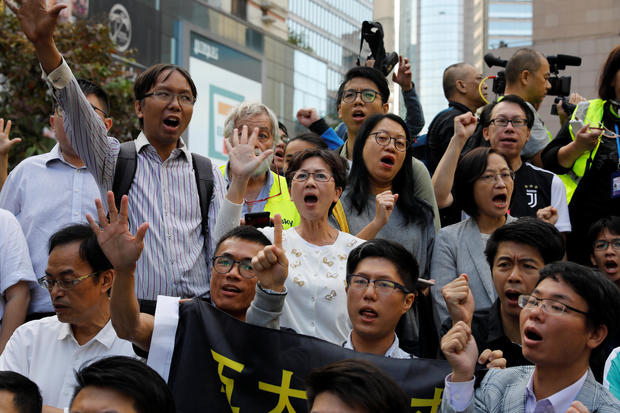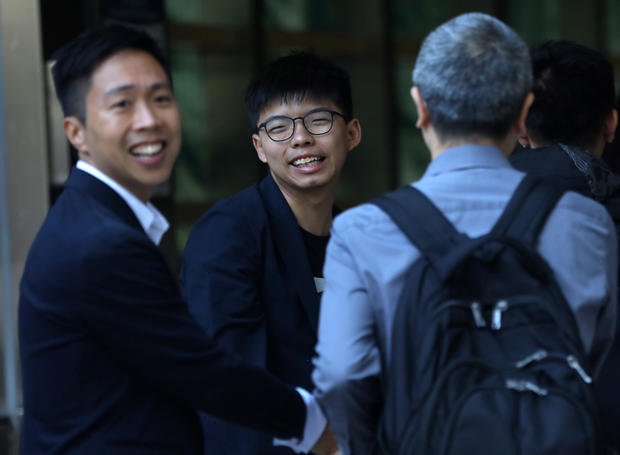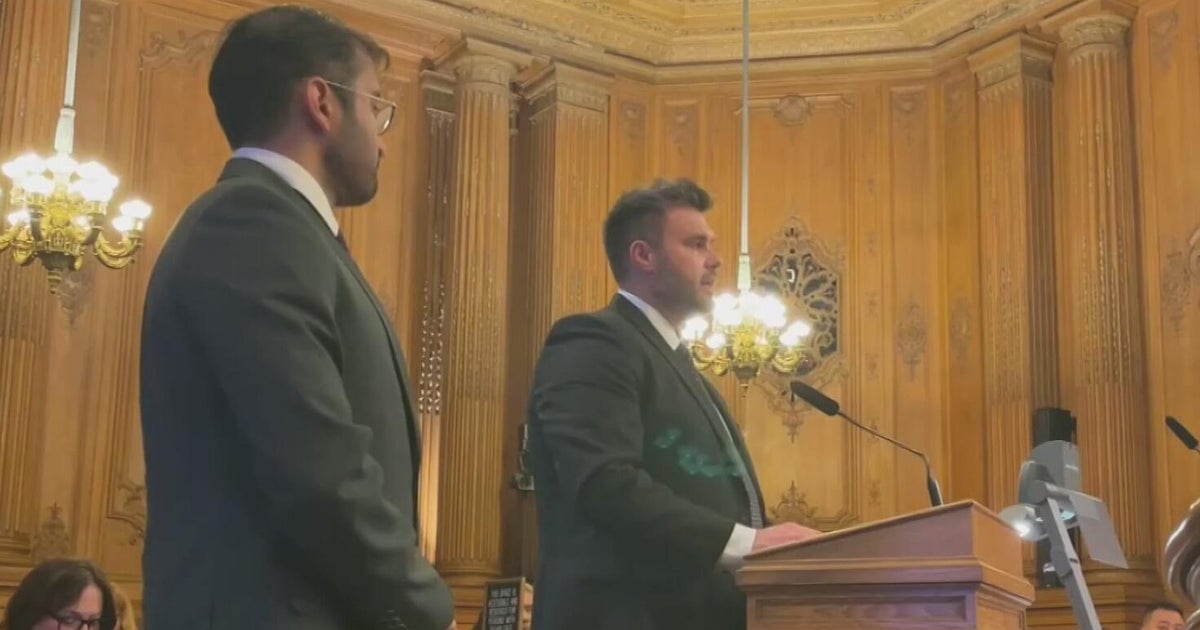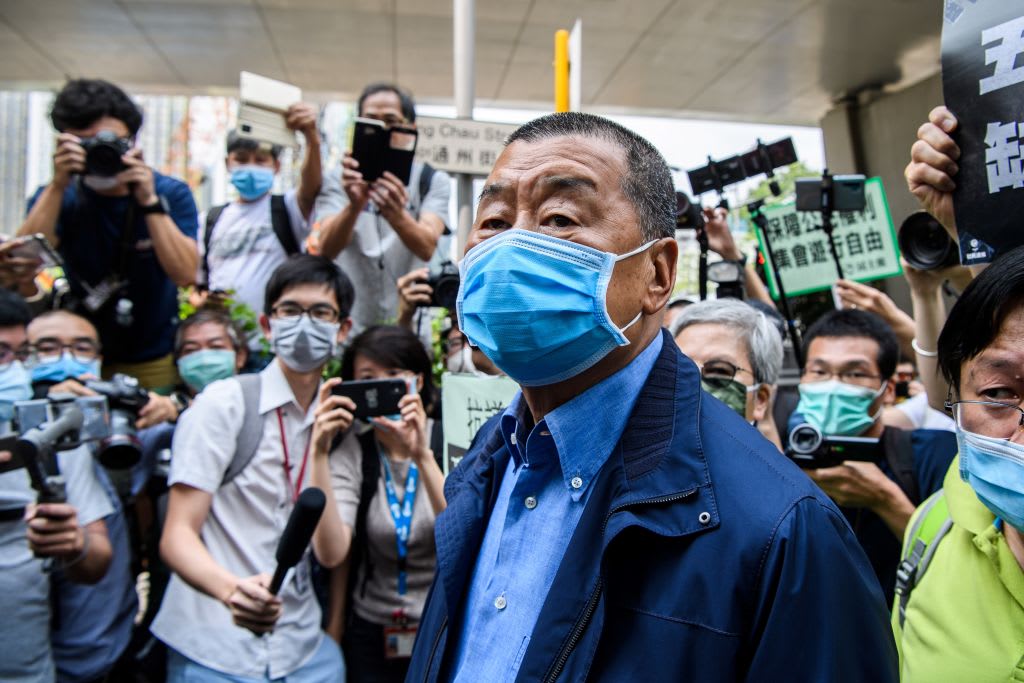Hong Kong's pro-democracy camp says election win "nothing short of a revolution"
Hong Kong — Hong Kong's pro-democracy opposition won a stunning landslide victory in weekend local elections in a clear rebuke to city leader Carrie Lam over her handling of violent protests that have divided the semi-autonomous Chinese territory. Wu Chi-wai, leader of the city's biggest pro-democracy party, said Monday that the bloc swept nearly 90% of 452 district council seats, which will help it take unprecedented control of 17 out of 18 district councils. The results were based on official tallies announced by election officials.
The result of Sunday's elections could force the central government in Beijing to rethink how to handle the unrest, which is now in its sixth month. The district councils have little power, but the vote became a referendum on public support for the protests.
"It's nothing short of a revolution. This is a landslide," said Willy Lam, a political expert at the Chinese University of Hong Kong. "It's a sound repudiation of the Carrie Lam administration and shows the silent majority are behind the demands of the protesters."
The pro-democracy camp hailed its astounding gains in the normally low-key race as a victory for the people and said Lam and Beijing must now seriously heed protesters' demands, in particular a call for an independent commission to investigate the events of the past six months.
After the results were announced on Monday, some of the newly-elected pro-democracy council members led groups of supporters to rally outside the Polytechnic University, where a small group of demonstrators remains holed-up in a standoff with police that has gone on for more than a week.
Beijing, which blames foreign powers for fomenting the unrest in Hong Kong, has showed no signs that it will soften its stance on the former British colony, which was returned to China in 1997.
"China's central government resolutely supports chief executive Carrie Lam's leadership of the Special Administrative Region government," Chinese Foreign Ministry spokesman Geng Shuang said Monday during a regular media briefing.
Lam issued a statement saying her government respected the results and would listen to and seriously reflect on the opinions of members of the public.
"There are various analyses and interpretations in the community in relation to the results, and quite a few are of the view that the results reflect people's dissatisfaction with the current situation and the deep-seated problems in society," she said.
But before the results were announced, Chinese Foreign Minister Wang Yi said Hong Kong was a part of China no matter what happened in the semi-autonomous territory. Speaking to reporters in Tokyo on Monday, Wang added that, "any attempts to destroy Hong Kong or harm Hong Kong's stability and development cannot possibly succeed."
A record 71% of Hong Kong's 4.1 million registered voters cast ballots Sunday, far exceeding the 47% turnout in the district council elections four years ago.
The largest pro-Beijing political party suffered a major setback, with at least 155 of its 182 candidates defeated, according to media tallies.
Horace Cheung, the vice chairman of the Democratic Alliance for the Betterment and Progress of Hong Kong, said the loss was the collective responsibility of the party, and that the party would reflect on the outcome to prepare for coming challenges.
Among the losing incumbents was controversial pro-Beijing lawmaker Junius Ho, who was stabbed with a knife while campaigning this month.
The winners included former student leaders and a candidate who replaced activist Joshua Wong, the only person barred from running in the election.
Pro-democracy rally organizer Jimmy Sham, who was beaten by hammer-wielding assailants last month, also triumphed, as did a pro-democracy lawmaker who had part of his ear bitten off by an assailant.
The demonstrations have turned increasingly violent. Protesters have smashed storefronts of businesses seen as sympathetic to China, torched toll booths, shut down a major tunnel and engaged in pitched battles with police, countering tear gas volleys and water cannons with torrents of gasoline bombs.
More than 5,000 people have been arrested in the unrest that has contributed to Hong Kong's first recession in a decade.
The vote is the only fully democratic one in Hong Kong. Members of the legislature are chosen partly by popular vote and partly by interest groups representing different sectors of society, and the city's leader is picked by a 1,200-member body that is dominated by supporters of the central government in Beijing.





